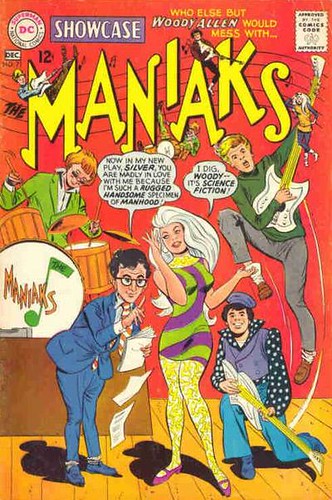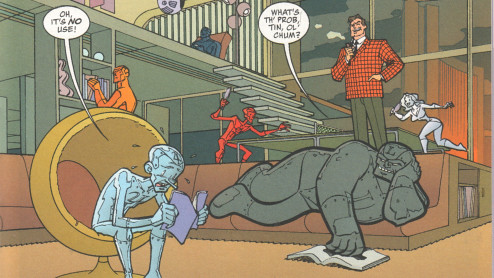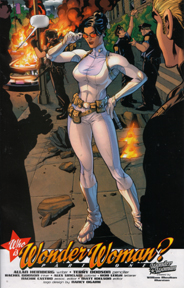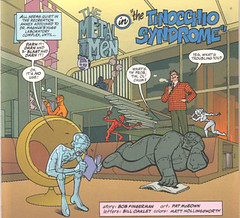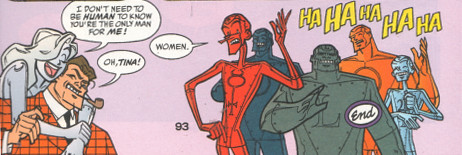In the past ten years or so, I have done a lot more reading about comics than comics-reading. Since I started to play around in the community of comics bloggers, I have been drawn into starting to pick up some new stuff, for the first time in a long time.
First,
Scipio got me to buy and read
Infinite Crisis, at least the first two issues. I didn't like it; even to someone predisposed to understand the form and enjoy the characters, it seemed inaccessible and nearly incomprehensible. I could not get past the sense that this was less a story than a marketing event.
For the record, I was around for
Crisis on Infinite Earths, and I didn't like that much either. I remember discussing it with a pal (in his kitchen, since there was no intarweb) and our take was something like this: if DC really wanted to re-start everything, they ought to have written finales to all the series, stopped the numbering, and started every magazine over with #1 the next month. There was no compelling reason top pursue what was essentially a company policy change as an in-story development. (If this option had been pursued,
Whatever Happened to the Man of Tomorrow would have an even more respected place in the canon, as the coda to a whole continuity.)
The same thinking, in my reckoning, applies to
IC; if continuity was a mess, ball it up, toss it in the trash, and start over. This convoluted universe-remodeling seemed pointless and unwieldy, and brings with it some extra baggage: from what I understand, the characters in the DCU, including just plain folks, are somehow aware that history has changed and that there are alternate universes and that some existences have been deleted and others merged and so on. Now, even in a world that accepts super-powered people but which is otherwise emotionally and spiritually like our own, wouldn't this make a profound change in how humans view the universe? How could it ever be business as usual again? Wouldn't this knowledge affect the warp and woof of every exchange among people - religion, commerce, ethics, science? Is DC really going to integrate this development in any meaningful way?
Okay, so the chatter on
IC got me to taste it and I didn't like it; the
chatter on
52 got me to pick it up and I'm loving it.
I enjoy it not so much because of its place in this huge retconning, but because it is clearly a story that has been crafted with care and attention to detail. I like that it comes out every week and that I can see the developments unfold swiftly; I like that there is an emphasis on second-string characters; I like all the visual and verbal clues scattered through the work; I even like the art. It's still a bit inaccessible; if you didn't know what was going on already, and if you didn't have a lot of knowledge about the DCU, it would be a bit hard to understand. But I forgive all that because it's telling a story - a full-bodied, robust story with good legs.
(Now, the
History of the DC Universe back-up, on the other hand, is a waste of ink and paper. Maybe it's supposed to provide the accessibility factor, but it's like watching a lecture from really bad educational TV - both ponderous and superficial.)
Lastly,
Marionette's review persuaded (compelled?) me to pick up the new Wonder Woman. She had the dreaded spoilers there; I won't go into details here except to say that the comic has my
new favorite panel in the world. Here's a bitty version; click for a big hi-res version if you don't care about the reveal.
So, I guess I'm going to pick up
Brave New World in a few weeks, and maybe even check out some of the series that come from it, such as
Atom and
Martian Manhunter.
It looks like I am reading comics again.
